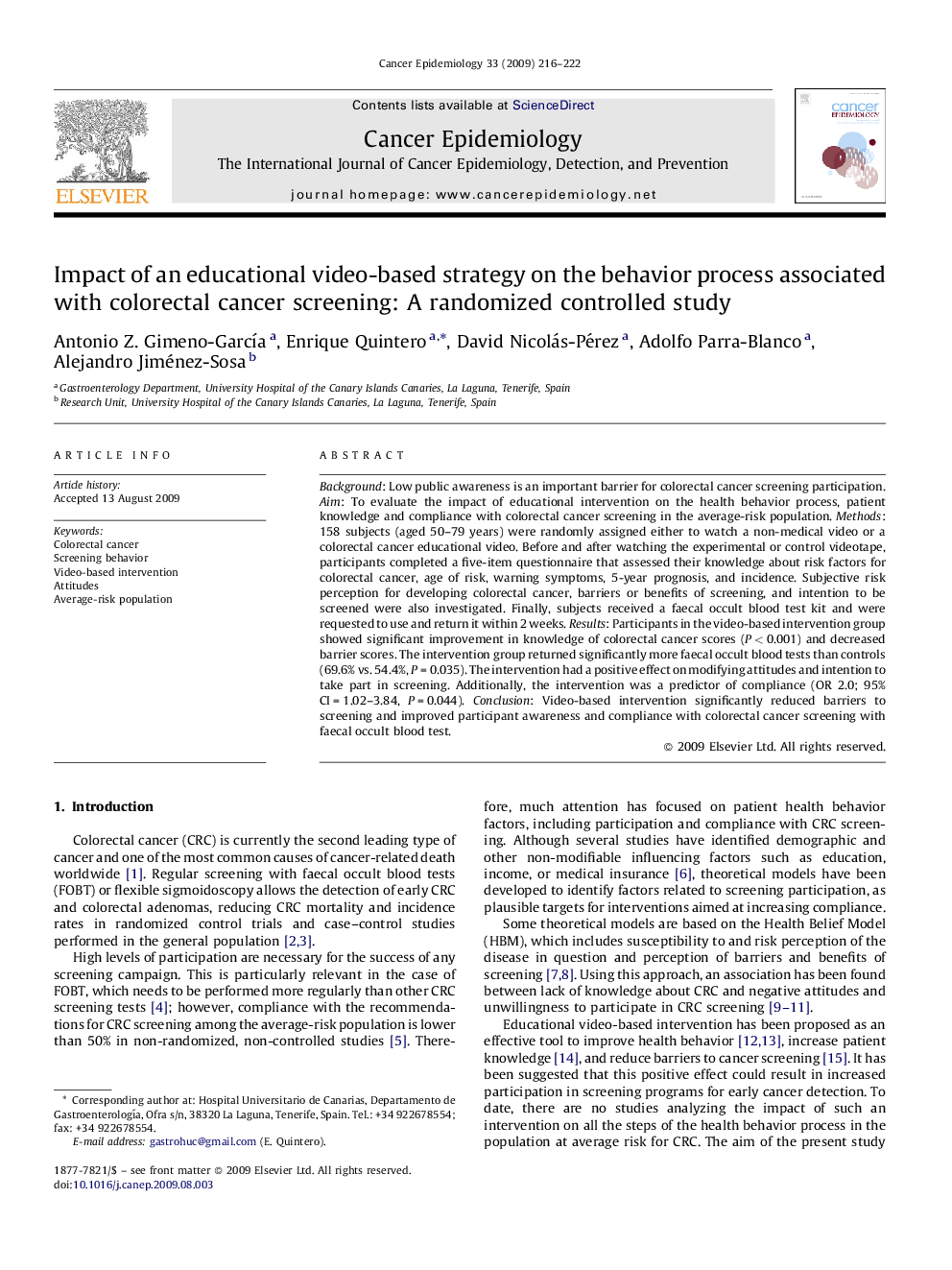| Article ID | Journal | Published Year | Pages | File Type |
|---|---|---|---|---|
| 2109380 | Cancer Epidemiology | 2009 | 7 Pages |
Background: Low public awareness is an important barrier for colorectal cancer screening participation. Aim: To evaluate the impact of educational intervention on the health behavior process, patient knowledge and compliance with colorectal cancer screening in the average-risk population. Methods: 158 subjects (aged 50–79 years) were randomly assigned either to watch a non-medical video or a colorectal cancer educational video. Before and after watching the experimental or control videotape, participants completed a five-item questionnaire that assessed their knowledge about risk factors for colorectal cancer, age of risk, warning symptoms, 5-year prognosis, and incidence. Subjective risk perception for developing colorectal cancer, barriers or benefits of screening, and intention to be screened were also investigated. Finally, subjects received a faecal occult blood test kit and were requested to use and return it within 2 weeks. Results: Participants in the video-based intervention group showed significant improvement in knowledge of colorectal cancer scores (P < 0.001) and decreased barrier scores. The intervention group returned significantly more faecal occult blood tests than controls (69.6% vs. 54.4%, P = 0.035). The intervention had a positive effect on modifying attitudes and intention to take part in screening. Additionally, the intervention was a predictor of compliance (OR 2.0; 95% CI = 1.02–3.84, P = 0.044). Conclusion: Video-based intervention significantly reduced barriers to screening and improved participant awareness and compliance with colorectal cancer screening with faecal occult blood test.
